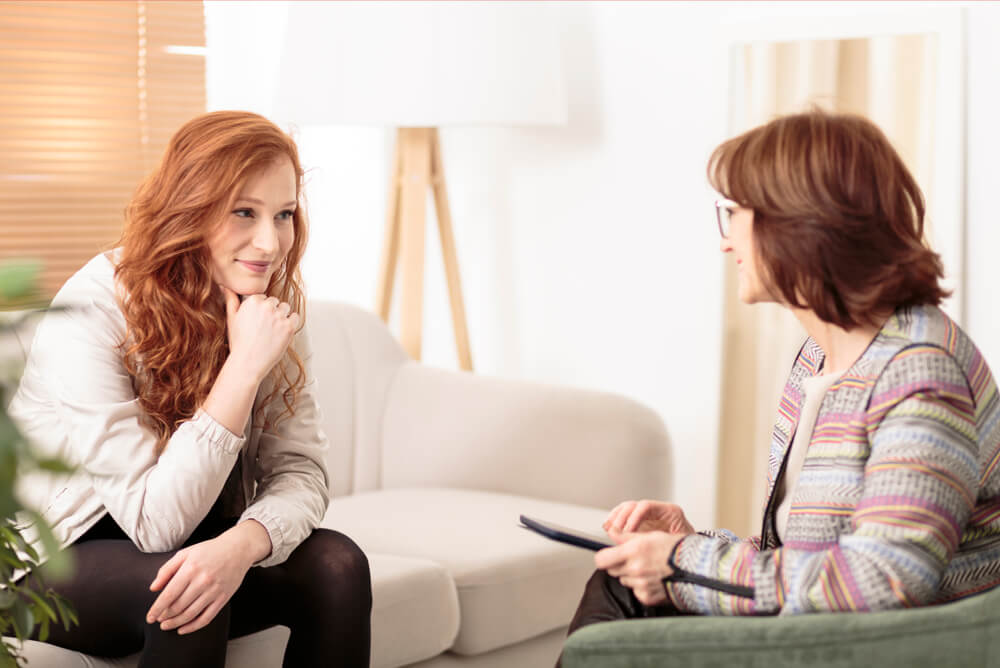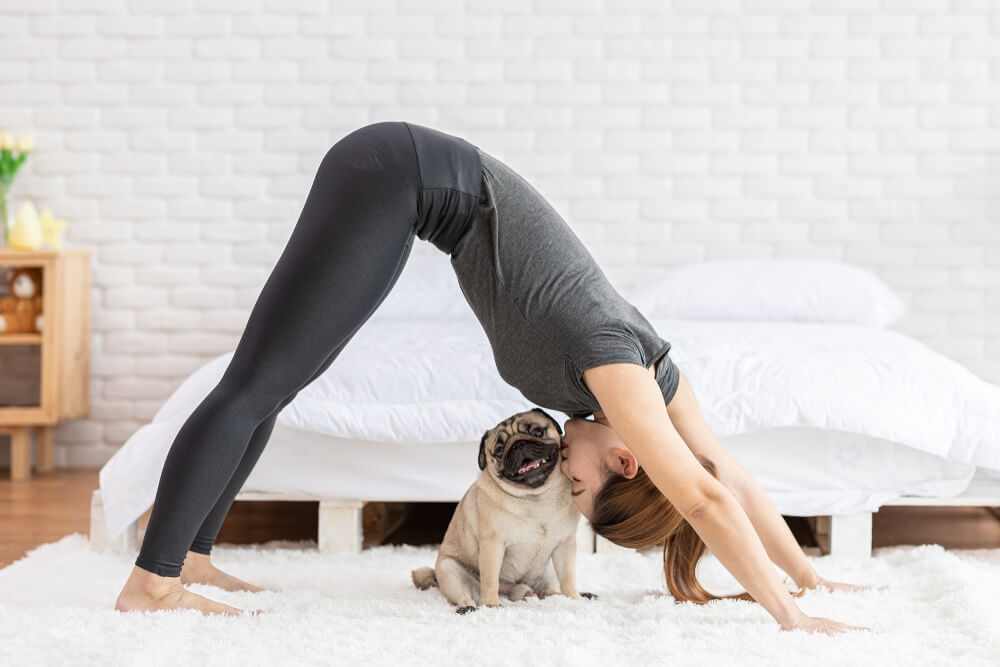Lifestyle
8 Unusual Self-Care Tips to Boost Your Mental Health
You’re stressed. You can’t seem to relax. There’s no time for a break. Sound familiar?
We all know the usual self-care tips – eat healthy meals, sleep 7—9 hours a night, exercise daily… but what if you’ve tried all of that, and you’re still on edge? Here are 8 unusual self-care tips to boost your own mental health and wellbeing.
Prioritize Sleep Quality Over Sleep Quantity

Having a good night’s rest is one of the most important and practical things we can do to boost our mental health. Sleep deprivation and poor sleep quality can result in poorer memory and cognitive outcomes, higher levels of frustration, and decreases in logical thinking. When we’re stressed, it can be much harder to fall asleep, stay asleep, and sleep deeply. I know – I just said that sleeping is a ‘normal’ self-care tip. However, rather than focusing on obtaining enough sleep, let’s focus on quality over quantity. So, what can you do to improve your sleep quality?
- Avoid alcohol late at night. Drinking alcohol before bed may indeed help you fall asleep faster, but it is also associated with more frequent nighttime awakenings and lower levels of deep sleep. In essence, the second half of the night is typically disrupted through alcohol consumption – and the second half of the night is where you usually obtain the most restorative sleep. Avoiding alcohol will assist you in waking up feeling well-rested and ready to begin the day.
- Turn off the electronics one hour before bedtime. Blue light, often emitted via phone, computer, and television screens, can increase our alertness and reduce our sleepiness via suppressed melatonin production (the hormone that makes you feel sleepy). In fact, blue light is often used to keep people awake! If you are unable to switch off your electronics, a good compromise is to use ‘night shift’ mode on your phone or laptop. Many brands, including Android and iPhone, have these features available and reduce the amount of blue light you are exposed to.
- Have a bedtime routine. Think about some soothing activities you can do an hour or so before bed to release the stress of the day. Some ideas may include meditation, taking a long relaxing bubble bath, drinking some tea, playing with your pet, going for an evening stroll, or chatting with a friend. Even if your routine is simply brushing your teeth and putting on your pajamas, sticking to this nightly routine can prepare your body and mind for bed.
- Do nothing in bed but sleep, and sleep nowhere but the bed. This is part of a concept known as ‘stimulus control’, where the goal is to strengthen the association between the bed and sleep. If you pair your bed with activities such as Netflix, work, or studying, the association between ‘bed’ and ‘sleep’ weakens. Do nothing in your bed other than sleep (and sex), ensure you avoid naps and be especially vigilant about napping in places other than your bed.
Volunteer with Animals, Or Simply Help Others!

Cuddling with a pet has been demonstrated to result in a release of oxytocin, a feel-good chemical produced in your brain. In fact, while having a snuggle, oxytocin is also released in your pet’s brain!
This isn’t only the case for snuggling, though – even gazing into your pet’s eyes can boost oxytocin for the both of you – potentially by up to 300%.
But if you don’t have a pet, don’t fret. There are plenty of animal shelters around desperate for help with walking animals, cleaning cages, and socialization. There are also hundreds of rescues desperate for foster carers – a demanding but rewarding role. Why not devote some time each week to help out, or open your home and sofa to a pet who needs somewhere safe to stay?
If pets aren’t your thing, don’t be turned off from this idea just yet…
According to the University of Sydney, Australia, general volunteering produces similar benefits, resulting in higher levels of happiness, health, and once again – oxytocin.
To get started, think about which organizations or causes you are passionate about. Are you passionate about reducing homelessness? Or working with those with disabilities? Maybe you’d like to provide practical assistance to those experiencing current hardship? Visit a few websites and find out what assistance you can provide. Keep in mind that you do not always have to provide ‘hands-on’ practical assistance – many organizations are in need of administrative help, social media reach, and other tasks you can do from home or at a distance.
Practice and Express Gratitude

It’s so easy to get lost in what’s wrong – whether these are big or small events – particularly in 2020. One 2019 study in the Journal of Positive Psychology found that gratitude can help you feel more hopeful about the future, as well as improve overall mood and wellbeing.
Here’s an easy way to begin this process – each evening, sit down and write 5 things for which you are grateful. These 5 things do not have to be significant or exciting. Perhaps your coffee was particularly good today, or you managed to re-connect with an old friend. Maybe you’re thankful for your pet, or the weather or your Uber Eats order hitting just right.
This will be tough at first, and you may forget to do this some days (or end up repeating the same list!)… but stick to it, and it’ll soon become a habit (and then you can be grateful for practicing gratitude).
Forcing ourselves to acknowledge and appreciate the good that we experience in our day-to-day lives can make the world seem a little more positive, kind, and loving. And if your gratitude list involves another person, don’t keep it to yourself – share the good vibes and thank the individual personally for brightening your day.
Practice Mindful Listening and Walking

Mindfulness refers to staying present in the current moment and accepting your thoughts without judgment. This practice can improve wellbeing, health, and happiness, encouraging you to focus on the ‘good’ as the ‘good’ occurs.
If you’re looking for more concrete evidence, newer neuroscientific studies have demonstrated that actual physical changes can occur in the brain when practicing mindfulness. For example, mindfulness can lead to a decrease in activity within the amygdala – the ‘fear processing’ center of the brain – leading to increased levels of relaxation and confidence.
If you’re new to mindfulness, this may seem a little overwhelming. Start slow. Head outside, close your eyes, and listen to the sounds of the birds. Immerse yourself in the activity. Your mind will likely wander off back to stressful thoughts, but that’s okay. Gently pull yourself back into the moment and re-focus your attention on the birds. What are their tweets like? Are they singing a tune? Do you enjoy it?
Mindful walking is another great way to trick yourself into practice. Even a short 5- 10-minute walk, while paying attention to your surroundings, can assist in clearing your head. Feel free to let your mind wander, and gently pull it back to the present moment. What sounds do you hear? What do you see? What kind of green is the grass? How does the pavement feel on your feet? How does it feel on your heel, and on your toes? How does the sun feel against your skin?
With any mindful activity, you should try to pay attention to your breath. There’s no secret formula, here, though it is usually recommended to take a 2-4-second breath in, and a 4-6-second breath out. Breathe calmly, slowly, and deeply.
Use the ‘Best Friend Technique’.

Sometimes we’re our own worst critics. We berate ourselves for tiny mistakes, withhold forgiveness and self-compassion, and neglect our very own needs.
A wonderful therapeutic strategy to assist in practicing self-compassion is called the ‘best friend technique’ – in essence, think of yourself as your best friend. If your best friend was struggling, would you tell them to suck it up and get over it? If not, then don’t do that to yourself! Instead, try to pamper and treat yourself, as you might encourage a best friend to do. Order in a family-sized pizza and eat the entire thing in front of the TV, if you like.
Being kind to yourself may feel uncomfortable and unusual at first – particularly if you are used to criticizing your own behaviors. However, this is a vital and useful skill to learn, and one that will hopefully follow you over your lifetime. The next time you make a mistake, pause, take a deep breath, and tell yourself “it’s okay”.
Learn a New Skill or Take a New Class

Ask yourself this: are there any activities I’ve been wanting to try, but I’ve never gotten around to doing? If your answer is yes, then it’s time to start!
Immersing yourself in a new hobby can be relaxing and therapeutic, especially if your hobby requires a great deal of focus and concentration, such as:
- Completing puzzles
- Painting
- Knitting
- Playing an interactive game
Losing yourself in a hobby can make time fly by a little faster – often distracting you from negative events and preventing you from immediate unhealthy reactions. The next time you find yourself getting a little aggravated or upset, give yourself an hour or two to immerse in a new task.
Learning something new also contributes to self-care, and can boost overall levels of happiness while triggering positive chemical changes in the brain.
Massive Open Online Courses, such as those provided by edX, are free online courses you can take online to further your education, or to pursue a new interest. These courses eliminate the typical barriers you may experience when it comes to education, such as cost or distance, and allow you the opportunity to learn from the comfort of your own home.
Get a Little Aggressive

Alright, you’ve tried meditation, you’ve gone for your walks and drank three cups of tea, but you’re still really stressed out. Now what?
According to psychoanalytic theory, ‘sublimation’ may be helpful. Sublimation is a defense mechanism (coping strategy) where we replace unacceptable urges or impulses, such as punching your boss in the face, with more acceptable strategies, such as kicking a ball across a football field.
So, let out your frustrations in a safe way! Any physical activity at this point will be helpful in releasing some of your aggravation and stress and is considered self-care.
Join a gym and make full use of their boxing equipment, go to a regulated Break Room and break a bunch of glasses, scream into your pillow at the top of your lungs, sing and dance until you’re exhausted, or go for a quick run.
If you do opt for a more ‘aggressive’ approach, such as boxing, ensure you do so in a safe and regulated manner, and take some time to wind down after releasing your frustration before returning back to your day. We want to be careful not to transfer that energy back to your initial trigger.
Seek Professional Help If Needed

While not an unusual self-care tip, it is an important one to mention.
These self-care tips cannot be used as a substitute for professional help, so if you feel yourself getting too overwhelmed or unable to boost your own mental health, please reach out and ask for assistance. In fact, these tips may work best in combination with professional help.
Therapy is a valuable and worthwhile tool, particularly when we are struggling with insight into our own cognitions and behaviors. And if you don’t click with the first therapist you see, then try another. The therapeutic relationship is extremely important for positive therapeutic outcomes, and it may take you a few tries to find someone you like.
Finally, I’d like to leave you with one of my favorite quotes by Max Ehrmann, from his famous piece ‘Desiderata’. The next time you are struggling, remember this: “Beyond a wholesome discipline, be gentle with yourself. You are a child of the universe no less than the trees and the stars; you have a right to be here… With all its sham, drudgery, and broken dreams, it is still a beautiful world.”



